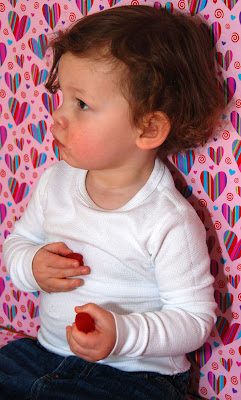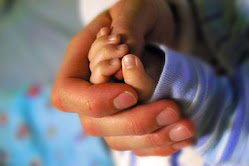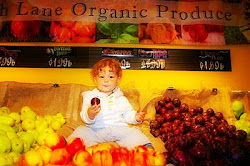
Who is this Saint Valentine?
One legend contends that Valentine was a priest who served during the third century in Rome. When Emperor Claudius II decided that single men made better soldiers than those with wives and families, he outlawed marriage for young men — his crop of potential soldiers. Valentine, realizing the injustice of the decree, defied Claudius and continued to perform marriages for young lovers in secret. When Valentine's actions were discovered, Claudius ordered that he be put to death.
Other stories suggest that Valentine may have been killed for attempting to help Christians escape harsh Roman prisons where they were often beaten and tortured.
According to one legend, Valentine actually sent the first 'valentine' greeting himself. While in prison, it is believed that Valentine fell in love with a young girl — who may have been his jailor's daughter — who visited him during his confinement. Before his death, it is alleged that he wrote her a letter, which he signed 'From your Valentine,' an expression that is still in use today.

One legend contends that Valentine was a priest who served during the third century in Rome. When Emperor Claudius II decided that single men made better soldiers than those with wives and families, he outlawed marriage for young men — his crop of potential soldiers. Valentine, realizing the injustice of the decree, defied Claudius and continued to perform marriages for young lovers in secret. When Valentine's actions were discovered, Claudius ordered that he be put to death.
Other stories suggest that Valentine may have been killed for attempting to help Christians escape harsh Roman prisons where they were often beaten and tortured.
According to one legend, Valentine actually sent the first 'valentine' greeting himself. While in prison, it is believed that Valentine fell in love with a young girl — who may have been his jailor's daughter — who visited him during his confinement. Before his death, it is alleged that he wrote her a letter, which he signed 'From your Valentine,' an expression that is still in use today.

Hot Springs
 We went on a beautiful windy drive through the mountains to get to the Ainsworth Hot Springs. We had a natural steam bath in the 150 foot cave. I cried, my Mom meditated.
We went on a beautiful windy drive through the mountains to get to the Ainsworth Hot Springs. We had a natural steam bath in the 150 foot cave. I cried, my Mom meditated.Unconditional Parenting by Alfie Kohn

"From the time he was young, he dressed the way you told him to dress; he acted the way you told him to act; he said the things you told him to say. He's been listening to somebody else tell him what to do....He hasn't changed. He is still listening to somebody else tell him what to do. The problem is, it isn't you anymore; it's his peers." - Alfie Kohn
Why did I give Lowen a time out? I feel uncomfortable and Lowen feels emotionally abandoned. Do you wonder why you constantly use rewards and postive reinforcement to get what YOU want? Then you have to read this book. It is a provocative challenge to the conventional wisdom about discipline. I studied Alfie Kohn in University and he inspired me to the be the kind of teacher I knew I wanted to be. So it didn't surprise me that I loved his parenting book as well. For those parents seeking alternative methods to parenting, like myself, this book will challenge the traditional perspective and will open your eyes to compassionate parenting. Alfie Kohn happens to be coming to Calgary next week which I am looking forward to attending.
"Unconditional parents don't just behave differently, such as avoiding the use of punishment. They SEE things differently. When a child does something inappropriate, conditional parents are likely to perceive this as an infraction, and infractions naturally seem to call for consequences. Unconditional parents are apt to see the same act as a problem to be solved, an opportunity for teaching rather than for making the child suffer. Again, it's not just the choice of a "working with" opposed to a "doing to"response; it's that these responses emerge from how one makes sense of what happened. Moreover, to see children's behavior as a "teachable moment" invites us to include them in the process of solving the problem, which is more likely to be effective." -Alfie Kohn
Most parenting guides begin with the question "How can we get kids to do what they're told?" -- and then proceed to offer various techniques for controlling them. In this truly groundbreaking book, nationally respected educator Alfie Kohn begins instead by asking "What do kids need - and how can we meet those needs?" What follows from that question are ideas for working with children rather than doing things to them. One basic need all children have, Kohn argues, is to be loved unconditionally, to know that they will be accepted even if they screw up or fall short. Yet conventional approaches to parenting such as punishments (including "time-outs"), rewards (including positive reinforcement), and other forms of control teach children that they are loved only when they please us or impress us. Kohn cites a body of powerful, and largely unknown, research detailing the damage caused by leading children to believe they must earn our approval. That's precisely the message children derive from common discipline techniques, even though it's not the message most parents intend to send. More than just another book about discipline, though, Unconditional Parenting addresses the ways parents think about, feel about, and act with their children. It invites them to question their most basic assumptions about raising kids while offering a wealth of practical strategies for shifting from "doing to" to "working with" parenting - including how to replace praise with the unconditional support that children need to grow into healthy, caring, responsible people. This is an eye-opening, paradigm-shattering book that will reconnect readers to their own best instincts and inspire them to become better parents.
Subscribe to:
Comments (Atom)















































